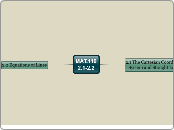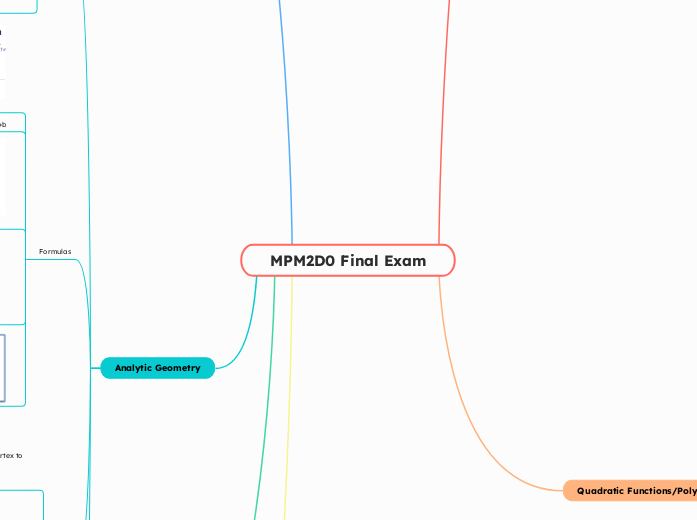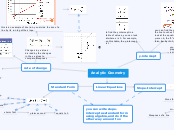MAT.116
2.1-2.2
2.2 Equations of Lines
Horizontal and Vertical Lines
Vertical lines have the form x = a.
Horizontal lines have the form y = b.
General Form
The equation Ax + By + C = 0 where A, B, and C are constants and A and B are not both zero, is called the general form of a linear equation in the variables x and y.
Standard Form
The equation Ax + By = C where A, B, and C are constants and A and B are not both zero, is called the standard form of a linear equation in the variables x and y.
Slope-Intercept Form
The equation of the line that has slope m and intersects the y-axis at the point (0,b) is given by
y = mx + b
This is also the function form of linear equations
y-intercept
Points on a graph of the form (0,b) where a graph crosses the y-axis.
x-intercept
Points on a graph of the form (a,0) where a graph crosses the x-axis.
Point-Slope Form
An equation of the line that has slope m and passes through the point (x1,y1) is given by
y - y1 = m(x - x1)
This can be derived from the formula for slope.
2.1 The Cartesian Coordinate System and Straight Lines
Straight Lines
Perpendicular Lines
If L1 and L2 are distinct nonvertical lines that have slopes m1 and m2 respectively, then L1 is perpendicular to L2 if and only if
m1 = -1 / m2
or alternately
m1 * m2 = -1
'
Lines with slope m=0 are perpendicular to lines with undefined slopes; that is, horizontal lines and vertical lines are perpendicular to each other.
Parallel Lines
Two distinct lines are parallel if and only if their slopes are equal or their slopes are undefined.
m1=m2
Slope of a Line
The slope, m, of a line containing the distinct points (x1,y1) and (x2,y2) is given by
vertical change
slope = m = --------------------
horizontal change
y2-y1
= ------
x2-x1
rise
= ----
run
change in y
= -------------
change in x
m>0 implies the line increases from left to right
m<0 implies the line decreases from left to right
m=0 implies a horizontal line
m undefined imples a vertical line
Vocabulary
Cartesian coordinate system
coordinate plane
xy-plane
Axes
x-axis
y-axis
Origin
Ordered pair
coordinates
(x, y)
(distance from vertical axis, distance from horizontal axis)
Quadrants
I (+,+)
II (-,+)
III (-,-)
IV (+,-)









